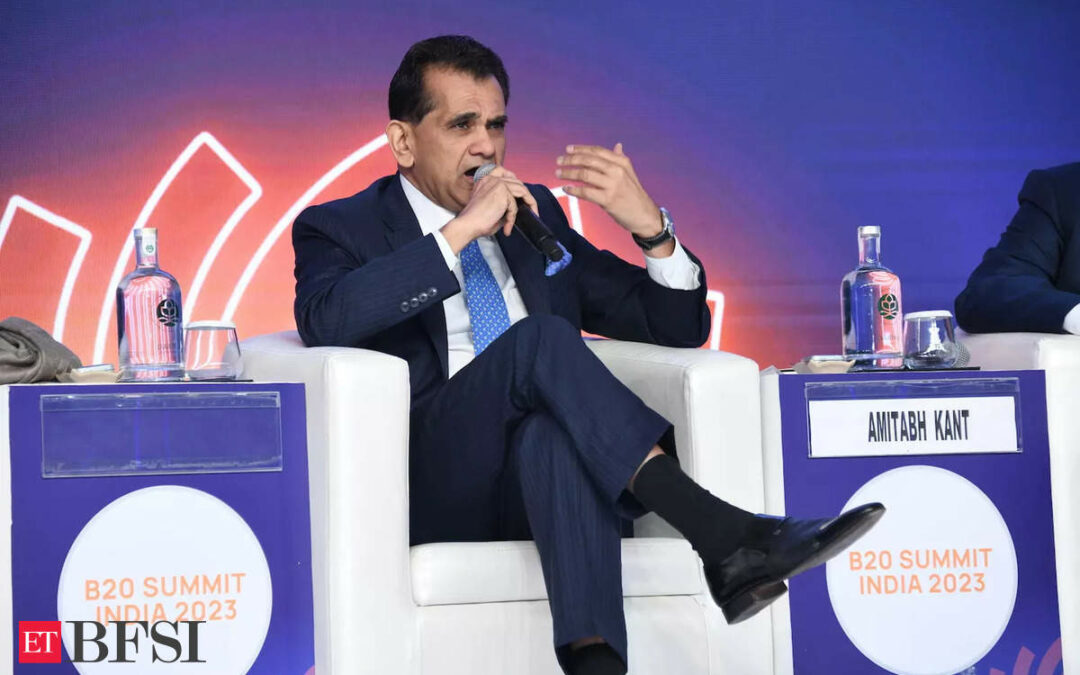The Global South’s economic potential would increase with India leading the way on several fronts, Amitabh Kant, India’s G20 Sherpa, said on Friday.
The term Global South refers to countries that are often labelled as developing, less developed or underdeveloped. These countries are primarily located in the Southern Hemisphere, specifically in Africa, Asia and Latin America.
The former NITI Aayog CEO said India’s G20 presidency has come at a time of huge global challenges, but the country is set to play a leading role in bolstering the growth of the Global South. “75 countries are facing a global debt crisis. You have a crisis of food, fuel and fertiliser and a climate crisis. The post-Covid era has seen about 200 million people go below the poverty line. 100 million people have lost their jobs. The geopolitical crisis in Europe continues for over a year and a half. The IMF predictions are that this year, 80% of the global growth is going to come from the Global South. And in the next two decades, two-thirds of the global growth is going to come from the Global South,” Kant said during his address at the B20 India 2023 meet in New Delhi on Friday.
While India would play a leading role in this journey, adequate resources should flow in here. For this, multilateral financial institutions would have to be restructured. He pointed out that the current international financial institutions were established prior to the emergence of the Sustainable Development Goals (SDGs) and climate change issues. “They were made in the post-World War Two period, the post-Bretton Woods period when there were no such challenges.”
Kant asserted that these organisations would have to be restructured to conform to the new realities of climate change and bring in new instruments like blended finance, first-class guarantees and credit enhancement to allow private capital to flow into the Global South.
Referring to India’s huge leap in technological transformation, he said the other key priority for India is technological transformation and digital public infrastructure. India has a unique digital public infrastructure model that involves open source and open APIs that are interoperable. This has allowed every Indian to make fast payments, he said, adding that the Global South would gain a lot from India’s experience.
Advocating the idea of free trade flows across the globe, he remarked that the world would benefit from not moving towards the “protectionist” path. Maintaining this focus would be crucial during India’s presidency. “The world is getting into recession, and after every pandemic, the world has seen historically six years of protectionism. It’s important for the world to get away from protectionistic tendencies since it is the virtue of free trade that has lifted millions of people above the poverty line. India’s key priority is growth through free trade by ending protectionism.”
Mentioning that the Covid era has seen the world become reluctant to actualise SDGs, he said only 12 of the 169 Sustainable Development Goals were on track. Thus, accelerating the pace of sustainable development goals was important. “India’s other key priority is climate action and climate finance. For this, a very concentrated action for climate action would require climate finance, which is critical for the world. This would also require an energy transition, where India has shown exemplary progress,” Kant added.










